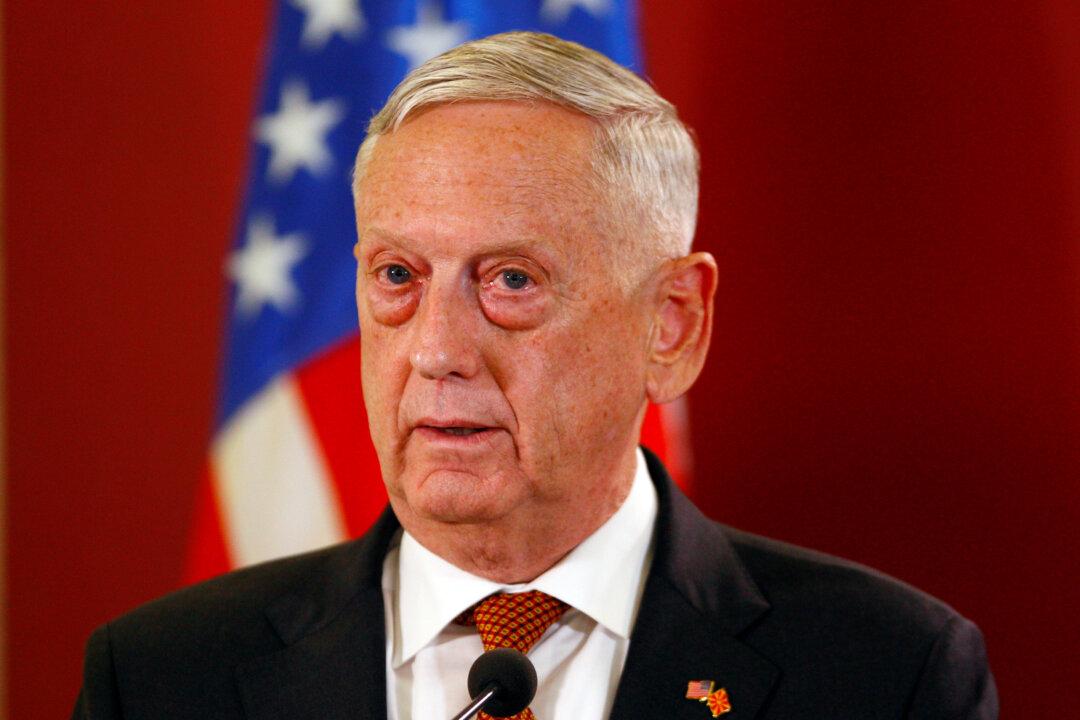PARIS—U.S. Defense Secretary Jim Mattis said on Oct. 1 he did not see relations between the United States and China worsening, a day after his trip to China was canceled and tensions have started affecting military ties.
The United States and China are embroiled in a trade war, sparked by U.S. President Donald Trump’s accusations that China has long sought to steal U.S. intellectual property, limit access to its own market and unfairly subsidize state-owned companies.





